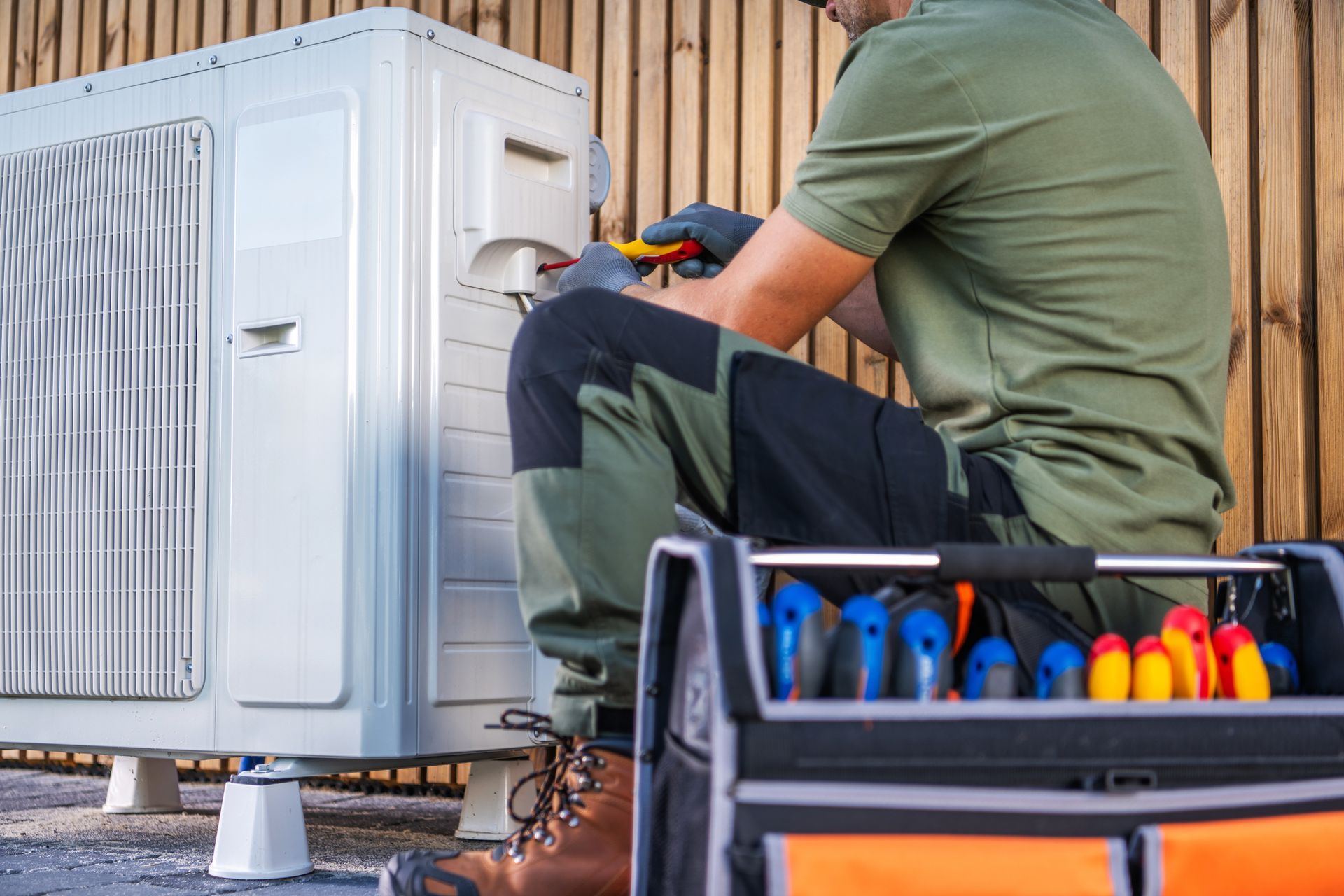Serving Residents of Tarrant County for Over 60 Years
Call the On-Time, Honest HVAC Experts | Available 24/7 for Emergency Services
What Size HVAC Unit Do I Need for My Tarrant County Home?

Choosing the right HVAC unit for your home is essential for comfort, efficiency and long-term savings. Installing an HVAC system that's too large can lead to short cycling, energy waste and increased costs, while one that's too small may struggle to cool or heat your home, causing it to run constantly and wear out faster.
The key to finding the perfect size for your home lies in understanding how HVAC load calculations work, along with considering important factors such as square footage, ceiling height and current insulation.
HVAC Size and Load Calculations
When it comes to determining the appropriate size of an HVAC unit, the term "size" refers to the unit’s cooling or heating capacity, which is measured in BTUs (British Thermal Units) per hour. BTUs indicate the amount of heat an air conditioner or heater can remove or add to your home in one hour. For air conditioners, the higher the BTU rating, the more powerful the unit.
A proper HVAC load calculation involves assessing how much cooling or heating your home needs. This calculation takes into account various factors:
- Square Footage: One of the most important elements in determining the right HVAC size is the total square footage of your home. Generally, larger homes require more powerful units. As a rule of thumb, most homes need around 20 BTUs of cooling power per square foot, but this can vary depending on other factors.
- Ceiling Height: Homes with higher ceilings will require more powerful HVAC systems to ensure the entire space is effectively cooled or heated. For example, homes with ceilings higher than the standard 8 feet will need to adjust the BTU calculation accordingly.
- Climate Zone: The climate in which you live plays a role in determining HVAC size. Homes in hotter climates, including Tarrant County, require more BTUs to cool, while homes in colder areas may need more heating power.
- Insulation: A well-insulated home will require less heating and cooling, allowing for a smaller HVAC system. On the other hand, older homes with poor insulation may need larger systems to maintain a comfortable temperature.
- Windows and Sunlight: Large windows or homes that are west-facing or southwest oriented without much exterior shade may absorb extra heat from direct sunlight on windows and exterior walls. These homes may require a more powerful system to offset the additional heat gain. Conversely, homes with fewer windows or energy-efficient window treatments might require fewer BTUs.
- Number of Occupants: People generate body heat, which means that homes with more occupants will require more cooling capacity. If you have a large family or frequently entertain guests, you might need a slightly larger unit.
- Appliances and Lighting: Heat-generating appliances and lighting can affect the load on your HVAC system. Kitchens, for instance, may require additional cooling to offset the heat from stoves, ovens and other appliances.
How to Perform a Basic Load Calculation
While hiring a professional to conduct a professional load calculation is a necessity before you invest in a new system, you can perform a rough estimate on your own based on square footage to get an idea of what you might need to spend.
Here’s a simple approach:
- Multiply the square footage of your home by 20 BTUs. For example, if your home is 1,500 square feet, you would need approximately 30,000 BTUs of cooling capacity (1,500 x 20 = 30,000).
This method offers a starting point, but it doesn’t account for other factors like ceiling height, insulation, windows or sun exposure. A professional contractor can perform a more detailed calculation using software or industry-standard methods such as Manual J load calculation, which accounts for every variable that affects heating and cooling needs.
Determining Whether You Need More Than One Unit
In larger homes or homes with complex layouts, one HVAC unit may not be enough to efficiently cool or heat every space. Homes that might benefit from additional units include those with:
- Multiple Floors: Homes with multiple stories often require separate HVAC units for each floor. Heat rises, meaning that the upper levels tend to be warmer than the lower levels. Having a dedicated unit for each floor allows for better temperature control and reduces the strain on a single system.
- Zoned HVAC Systems: If your home has distinct living areas with different temperature needs, a zoned HVAC system may be the best solution. A zoned system divides your home into separate areas, each with its own thermostat, allowing for individualized control without requiring multiple units. However, larger or more complex homes with zoned HVAC may still benefit from having more than one unit.
- Room Additions: If you’ve recently added a room or converted a garage or basement into living space, your existing HVAC system may not have the capacity to cool or heat the additional area. In such cases, adding a second, smaller unit or a ductless unit for the new space could be the most efficient option.
- Comfort and Efficiency: Even in single-story homes, using two units can provide better comfort and energy efficiency. If one side of your home is consistently hotter or colder than the other, or if you have areas that are rarely used, having separate units can help maintain comfort without wasting energy.
Trust the Arlington Air Conditioning and Heating Experts for Your HVAC Needs
If you’re looking to install a new HVAC system or need maintenance on your current unit, don’t hesitate to contact us at Tom’s Mechanical Inc. by calling 817-277-4493.
We’re here to help make sure your home stays comfortable year-round with expert advice and services.
OTHER RECENT POSTS
REQUEST YOUR SERVICE WITH TOM'S MECHANICAL, INC.
For 24/7 emergencies, call us at (817) 277-4493 today!
Our Web Form Is Not For Emergencies
WE'RE A CUT ABOVE THE REST
Over 60 Years of HVAC Solutions
You Deserve To Be Comfortable In Your Own Home
Delivering the Highest Quality of Service
Serving Arlington, Southlake, Grapevine and Keller
Available 24/7 for Emergency Services
Quick Links



